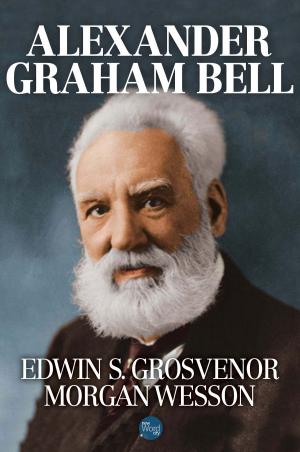The Case of the Slave Ship Amistad
Nonfiction, History, Americas, United States, 19th Century, Military| Author: | Mary Cable | ISBN: | 9781640190917 |
| Publisher: | New Word City, Inc. | Publication: | November 6, 2018 |
| Imprint: | Language: | English |
| Author: | Mary Cable |
| ISBN: | 9781640190917 |
| Publisher: | New Word City, Inc. |
| Publication: | November 6, 2018 |
| Imprint: | |
| Language: | English |
In August 1839, what appeared to be a listless pirate ship, unidentified by any flag, was spotted off the North Atlantic coast of the United States. On board were thirty barely clad black men, armed with cutlasses, and two white men - Spanish slave owners with an incredible story to tell. A month earlier, the Amistad had set sail from Havana with a valuable cargo of slaves and 40,000 worth of gold doubloons. She was headed for the Cuban coastal town of Puerto Principe - but in a matter of days, the captain and the cook were dead, and the ship was in the control of the slaves. Thus began "the Amistad affair," which, writes Mary Cable, "was to bedevil the diplomatic relations of the United States, Spain, and England for a generation; intensify bitterness over the question of slavery; and lead an ex-president (John Quincy Adams) to go before the Supreme Court and castigate the administration in an eloquent plea for the slaves' freedom. In her fascinating and carefully researched account, Cable takes us right to the heart of these complex matters, dramatically replaying an incredible series of events that converged to form a uniquely exciting and challenging chapter in American history.
In August 1839, what appeared to be a listless pirate ship, unidentified by any flag, was spotted off the North Atlantic coast of the United States. On board were thirty barely clad black men, armed with cutlasses, and two white men - Spanish slave owners with an incredible story to tell. A month earlier, the Amistad had set sail from Havana with a valuable cargo of slaves and 40,000 worth of gold doubloons. She was headed for the Cuban coastal town of Puerto Principe - but in a matter of days, the captain and the cook were dead, and the ship was in the control of the slaves. Thus began "the Amistad affair," which, writes Mary Cable, "was to bedevil the diplomatic relations of the United States, Spain, and England for a generation; intensify bitterness over the question of slavery; and lead an ex-president (John Quincy Adams) to go before the Supreme Court and castigate the administration in an eloquent plea for the slaves' freedom. In her fascinating and carefully researched account, Cable takes us right to the heart of these complex matters, dramatically replaying an incredible series of events that converged to form a uniquely exciting and challenging chapter in American history.















